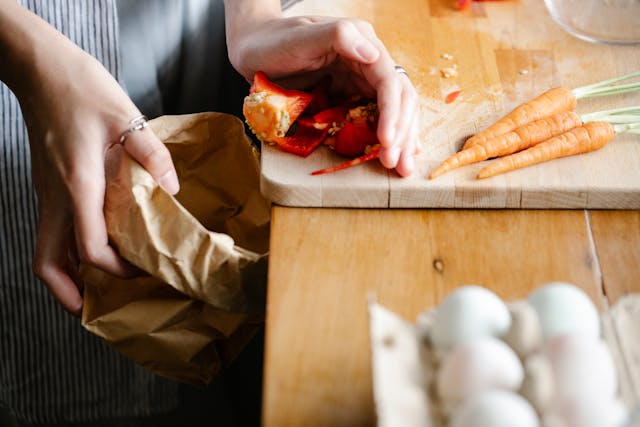Summer is in full swing, which means picnics on the beach, backyard barbecues and, unfortunately, the accompanying food waste. With all the outdoor parties and fresh produce available, it’s easy for meals to end up as leftovers or get tossed in the dumpster. Explore five practical strategies to maximize your leftovers and minimize your environmental footprint.
Plan Meals Before Shopping
Meal planning helps reduce your number of grocery trips and keeps you on budget. List everything you need to make each week so you don’t end up wandering around the grocery store. Here are some meal-prepping tips:
- Craft a menu: Ask your family for suggestions, stick to tried-and-tested recipes or look for inspiration online.
- List everything: Create a shopping list containing the ingredients needed to make the recipes. This is also an excellent time to restock other household items.
- Go shopping: Scour local grocery stores’ ads to get the best deals.
Aim to create enough meals for two to three days of the week if you’re new to planning.
Refresh Leftovers
You probably have containers of leftovers in your fridge that you’re unsure what to do with, such as extra grilled chicken or yesterday’s pizza. Knowing how to upgrade your food can be challenging, especially if no one’s willing to eat it anymore. Fortunately, there are ways you can love your leftovers:
- Make a salad: Chop cooked meat, boiled eggs and roasted vegetables. Add herbs and spices to enhance the flavor.
- Create fried rice: This Asian dish is excellent for leftover rice. Mix any vegetables you have on hand, like carrots and peas, in a wok or pan. Push the veggies aside and crack an egg in the middle. Mix everything before adding leftover rice.
- Make a sandwich: Sandwiches are an easy way to use leftover meat, vegetables and spreads. Use leftover chicken, roast beef or turkey to create a cold-cut sandwich or wrap.
Freeze Your Food
Your freezer is your best friend this summer. Use it to store fruits, vegetables, cheese, bread and leftovers to reduce food waste. You can keep chopped bananas, peaches, plums, tomatoes and cucumbers in the freezer for smoothies. Seal them in a bag and place them in a freezer with temperatures ranging from -20 to 55 degrees Fahrenheit to keep them fresh for longer.
When freezing small baked goods like cookies, remove as much air as possible before placing them in a bag.
Compost Leftover Food
Composting is a sustainable way to nourish your plants and soil. Each person generates around 4.51 pounds of municipal solid waste (MSW) daily, and implementing this eco-friendly activity can help you contribute to a healthier planet. Set up an outdoor composter if you have a yard or invest in a countertop model if you live in a small space.
Practice Good Food Storage Habits
Use produce storage bags or containers with small ventilation holes to prevent the risk of mold and moisture accumulation. Avoid storing raw and cooked food near each other to avoid contamination, which can be toxic. Remember to keep raw meats below cooked meals to prevent juices from dripping on your leftovers.
Why Is Food Waste Reduction Important?
Over 1 billion tons of food was wasted in 2022, but one-third of the global population experiences food insecurity. This waste also threatens the environment, leading to greenhouse gas emissions and biodiversity loss. Addressing this worldwide concern this summer means taking small steps toward a more sustainable future.
Waste Less, Save More
Remember that your hard-earned money is wasted every time you throw food in the dumpster. Adopt these sustainable strategies to help reduce waste, save money and contribute to a greener future.
Mia Barnes
More from Mia Barnes
8 Wellness Tips That All New Moms Should Know
Read More
You may also like

Panamanian Foods That Are Delicious

How Do You Add More Protein Into A Plant-Based Diet?

5 Reasons Why The Keto Diet Is Making You Gain Weight

